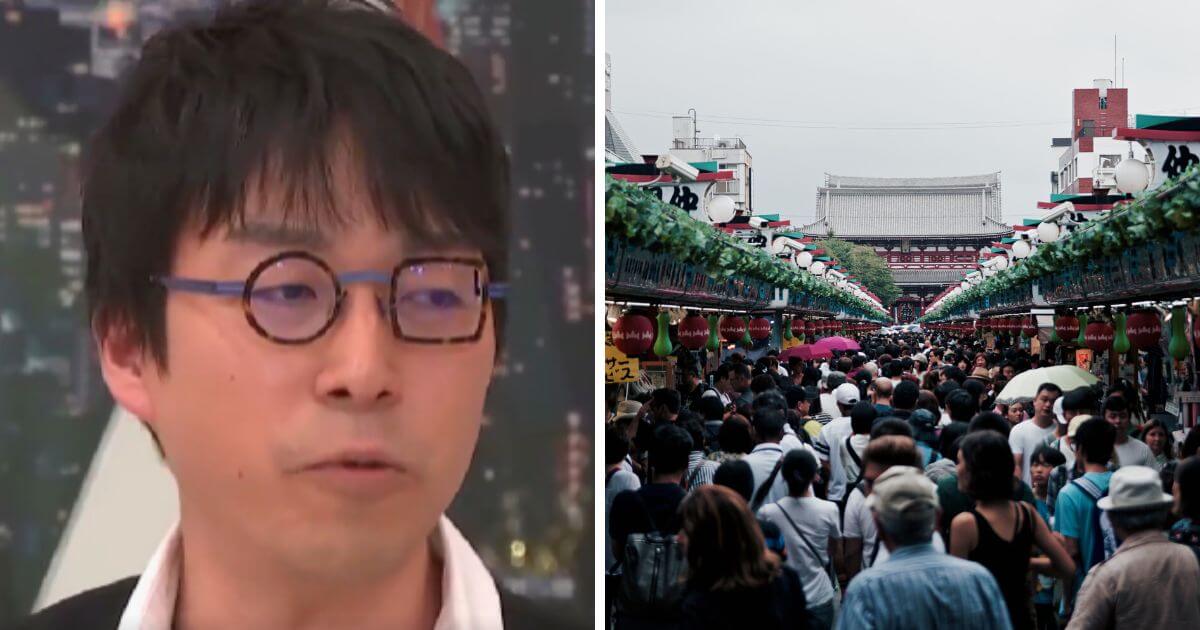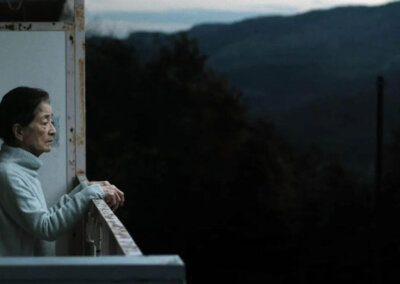A professor from Yale University has suggested that the solution to Japan’s rapidly ageing population is “mass suicide and mass ‘seppuku’” of the elderly. Seppuku was an act of ritual suicide among samurai in the 19th century.
Japan faces potentially serious societal problems due to its rapidly ageing population. Yusuke Narita, an economics professor at Yale and media personality in Japan, has made several provocative comments in which he suggests “mass suicide” might be a “solution” to this problem.
During an online news program in 2021, he said “I feel like the only solution is pretty clear. In the end, isn’t it mass suicide and mass ‘seppuku’ of the elderly?”. As the New York Times explains, “Seppuku is an act of ritual disembowelment that was a code among dishonoured samurai in the 19th century.”
In 2022, when asked by a schoolboy to elaborate on his statements about mass suicide, he made reference to a horror film in which cult members send its eldest members to commit suicide by jumping off a cliff.
Narita then said “Whether that’s a good thing or not, that’s a more difficult question to answer. So if you think that’s good, then maybe you can work hard toward creating a society like that.”
He has also said that the “possibility of making [euthanasia] mandatory in the future [will] come up in discussion.”
During a panel at a Japanese graduate business school, Narita told the audience that “if this can become a Japanese society where people like you all commit seppuku one after another, it wouldn’t be just a social security policy but it would be the best ‘Cool Japan’ policy”. ‘Cool Japan’ is a government-sponsored program promoting Japan’s cultural products.
“He’s not focusing on helpful strategies”
Narita’s comments have only recently come to wider attention after they began circulating on social media last month. Narita has said that his statements have been “taken out of context” and that he was mainly concerned with the dominance of older people in leadership positions in politics and business leaving little room for the young.
He added “I should have been more careful about their potential negative connotations. After some self-reflection, I stopped using the words last year.”
His comments have caused considerable consternation in Japan. A University of Tokyo sociologist, Yuki Honda, described his comments as “hatred toward the vulnerable.”
Masaki Kubota, a journalist who has written about Narita said “It’s irresponsible”. Some people might think ‘oh, my grandparents are the ones who are living longer and we should just get rid of them’”, Mr Kubota said.
Another columnist Masato Fujisaki, argued that Narita’s comments “should not be easily taken as a ‘metaphor’”.
Alexis Dudden, a historian at the University of Connecticut who studies modern Japan, criticised Narita for not providing real solutions. He said “he’s not focusing on helpful strategies such as better access to daycare or broader inclusion of women in the workforce or broader inclusion of immigrants. Things that might actually invigorate Japanese society.”
One in five cite loneliness as a reason to want to die
In other jurisdictions in which euthanasia and assisted suicide have been made legal, people who end their lives in this manner frequently give non-medical reasons for wanting to die. In 2021, 10,064 lives were ended by assisted suicide or euthanasia, an increase of over 32% from the previous year, accounting for 3.3% of all deaths in Canada.
According to the latest report on Medical Assistance in Dying from Health Canada, 17.3% of people also cited “isolation or loneliness” as a reason for wanting to die. In 35.7% of cases, patients believed that they were a “burden on family, friends or caregivers”.
Statistics from the state of Oregon, which made assisted suicide legal in 1997, show that most end-of-life concerns are not medical. The Oregon Health Authority report for 2021 says that 54.2% of patients were concerned with being a “burden on family, friends/caregivers”. 92% of patients were concerned with being “[l]ess able to engage in activities making life enjoyable”. 93.3% were concerned with “losing autonomy” and 68.1% were concerned with “loss of dignity”. Of the total who have died since 1997, 27.5% have listed “inadequate pain control, or concern about it” as one of their end-of-life concerns.
Right To Life UK spokesperson Catherine Robinson said “People suffering from loneliness, or who fear being a burden or losing autonomy, are not suffering from a medical condition. Our society should not be encouraging people to end their lives as a ‘solution’ to these problems.”











